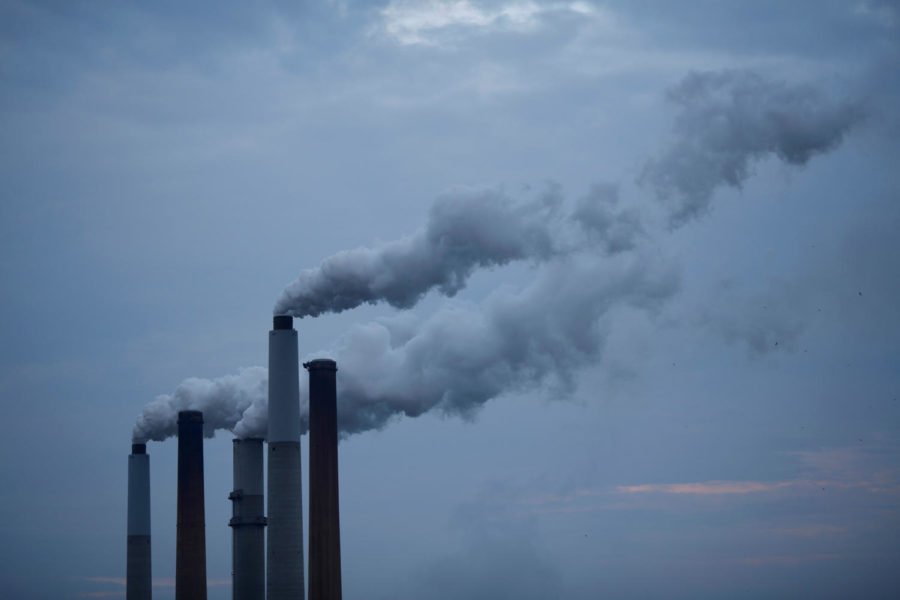The Reality of Climate Change
The world has long known the cause of climate change: human industrial activity, specifically the burning of fossil fuels, which releases greenhouse gases into the atmosphere. These gases compound the greenhouse effect and are the largest contributing factor to the warming of Earth.
Climate change is already having significant effects on the environment, including rises in sea level and temperature, and will continue to affect it, causing droughts, more frequent and more intense hurricanes, changes in precipitation patterns, and the reduction of sea ice in the Arctic and Antarctic, among other things.
The Climate Science Special Report, a massive study recently published by several US government agencies, reaffirms prior scientific findings which assert that the earth is warming at an unprecedented speed, stating confidently, “This period is now the warmest in the history of modern civilization.” It also contends that current climate models are conservative and more likely to underestimate future warming than overestimate it. These claims are supported by a mountain of evidence compiled and synthesized by the world’s top climate experts. These experts hail from NASA, the NOAA, the EPA, the Army Corps of Engineers, Columbia University, and countless other institutions. Needless to say, the report is credible. Its results are not surprising; they confirm what decades of research have suggested.

In spite of this, Scott Pruitt, director of the EPA, announced early last month a proposed rule that would repeal the Clean Power Plan, the part of the Clean Air Act of 2015 aimed at reducing American carbon emissions. Pruitt claims he is “ending the war on coal.” More recently, Pruitt announced that the EPA is no longer hiring scientists who receive funding from the agency. Consequently, he has appointed 66 new experts to scientific advisory boards, many of whom come from the very industries the EPA regulates. In June, President Trump announced that the US – the world’s second largest polluter – would be leaving the Paris Climate Accord – a landmark agreement between 195 nations reached in 2015. The accord is intended to foster international cooperation in the reduction of greenhouse gas emissions. In the accord, the United States had pledged to reduce carbon emissions by 26 to 28 percent below 2005 levels by 2025 and lend up to $3 billion in aid to poorer countries by 2020.
These actions are a slap in the face not only to scientists but to the American people, save the leaders and lobbyists of the energy industry. While it is true that fossil fuels helped make America a superpower, it is time to move on. Climate change now poses a serious threat to the United States, and actively working against attempts to mitigate it is unacceptable. Regulations put in place to reduce carbon emissions are not draconian efforts to undermine American industry; rather they are attempts to protect public health and safety. To say that replacing scientists with energy lobbyists in the EPA reduces conflict of interest, as Pruitt has claimed, is absurd. The notion that the Paris accord is unfair is false; the US made its pledge voluntarily and, as Elon Musk points out, it would have fostered job growth in the clean energy industry. Unfortunately, President Trump used leaving the accord to propel his “America First” doctrine, stirring up isolationist fervor and satisfying his most adamant supporters. In doing so, the President ignored reality: it is possible to simultaneously protect American jobs and mitigate the effects of climate change. A Forbes article points out that “more people were employed in solar power last year than in generating electricity through coal, gas and oil energy combined.”
Climate change is real, it is caused by humans, and it should not be politicized. If the country is going to adapt to a warming world, it has to stop equivocating and start acting. President Trump and Scott Pruitt need to realize that in satisfying their base and their friends in the energy industry they are doing the rest of the American people a disservice. As leaders of the world’s most powerful nation, they should be setting a positive example for the world to follow and should be helping poorer nations follow that example. For now, unfortunately, the world can only hope that the United States will do its best to reverse its recent mistakes.











